The lack of snow falling on central Maine streets has public works crews spending more time on normally out-of-season projects including paving in December, grading ditches, cutting brush and spending more time at home rather than being out all night racking up overtime plowing snow.
That’s meant some things that never got done last year because of the early arrival of snow are getting taken care of before the snow falls this year, and overtime budgets busted by last year’s snow are largely untouched.
“It has given us time to get caught up,” said Gregory Dore, road commissioner in Skowhegan. “We’re still finishing up summer projects we typically wouldn’t be able to do this time of year.”
With the ground still not frozen, that late December work has included grading and brush-cutting, with Dore, a 25-year veteran, noting, “I don’t think I’ve ever graded a road in December.”
From Gardiner to Skowhegan, public works crews who last year had already plowed twice by Thanksgiving haven’t had to plow even once so far this snow removal season with only three or four icy mornings requiring the use of sand in most towns.
Bruce Balfour, public works director in Monmouth, said by this time last year they’d already put about 1,200 yards of sand on local roads. This year, he doesn’t think they’ve even put out 200 yards of sand yet.
“Every day it doesn’t snow, we’re saving money,” Balfour said.
Dore said Skowhegan crews by this time of year last year had been out sanding and salting at least 15 times. This year they’ve only been out three times to do some sanding for icing. He said that translates into about $30,000 in savings alone.
Waterville Public Works Director Mark Turner said the city has probably spent 10 to 20 percent under what it normally projects to have spent by this time of year. Last year, by Dec. 23, Waterville crews had been out to deal with winter snow removal 14 times. This year they’ve just been out a few times to spot-sand for ice.
If that were to continue the whole plowing season, that could save the city as much as $750,000.
But no one, Turner included, expects the lack of snow to last. He said the true severity of winter won’t be known until January, February and March.
Mike Kistner, a meteorologist for the National Weather Service, said it is fairly unusual not to have had any measurable snowfall by now.
By this date last year, Portland had 13.9 inches of snowfall, including a storm on Thanksgiving.
He said Wednesday the long range forecast indicated many areas of the state could possibly see their first measurable snow on Tuesday. How much snow the state will get, if any, depends largely on the strength and duration of a high pressure system coming out of Canada.
“There is still a lot of uncertainty whether we will see snow or not,” Kistner said of Tuesday’s potential storm. “There is still a lot up in the air.”
The lack of snow, accompanied by warm temperatures, allowed Augusta crews to pave until Dec. 9, well beyond normal.
Lesley Jones, public works director in Augusta, said the lack of snow removal duties freed up time for city crews to get to some things on their to-do list.
That has included training on plowing, sanding and salting techniques for the city’s three or four new drivers and time for even veterans to get accustomed to new equipment, including a grader with a joystick instead of a steering wheel and a new, $100,000 snow blower that mounts onto a front-end-loader.
The additional time with no snow also gave crews more time to “police” city streets to pick up rocks and other debris that could potentially damage the new snow blower, Jones said.
“A lot of times you have a to-do list in the fall and snow comes and that to-do list gets transferred to spring,” Jones said. “This year, with the lack of snow, we’ve got longer to do those kinds of things. We’re enjoying the warmth, enjoying the savings on heating.”
Jones said the overall budget savings haven’t been huge because crews are scheduled to work anyway, but the city is saving money on spending for overtime, sand and salt.
Tony LaPlante, public works director in Gardiner, said the money spent on winter road maintenance so far has been almost nothing. Crews, instead of plowing, have been able to do a lot of brush cutting in Gardiner.
He said last winter’s repeated snowstorms, many coming on weekends, maxed out the city’s budget and forced it to exceed its materials budget for sand and salt.
“The part that got us the worst last year was the storms were so close together, so you don’t really get a break,” he said. “Every three days, by the time you clean up from one, it was snowing again.”
Turner said Waterville budgets for between 15 and 18 storms a year. The last storm that required plowing and sanding, the 36th of the season, came April 9.
Turner said this season’s so far unseasonably warm, snow-free weather has allowed crews to do more equipment maintenance and repairs. Turner regrets at least one bit of equipment maintenance they’ve done already, winterizing the street sweepers. They could still be using them.
“We winterized the sweepers,” he said. “I kind of wish I hadn’t done that. They’re in cold storage.”
Wilton’s Department of Public Works plows and maintains 71 miles of roadway through the winter. To do so, the department uses 4,000 to 5,000 yards of sand in one season and budgets to utilize 1,200 tons of salt.
While the department purchases all the sand it will use in a season up front, the purchase of the salt is spread out through the season as needed.
Wilton Public Works Foreman Dale Roberts said that they go into winter prepared with both their salt and sand sheds full starting in October.
“We are fully prepared by Halloween, because you just don’t know when a storm is going to hit,” Roberts said.
Dore said Skowhegan typically sees 80 to 90 inches of snow over the winter every year with the only difference being what time of year it falls. He expects that amount of snow to come this year, too, sooner or later.
For workers, the plowing season to date may have been easier on their backs, but harder on their wallets.
“It has been a nice break from last year, but the guys are getting a little antsy,” Dore said. “A good part of what is in their pockets in winter is overtime. And they’re not getting any.”
Keith Edwards — 621-5647
Twitter: @kedwardskj
Send questions/comments to the editors.


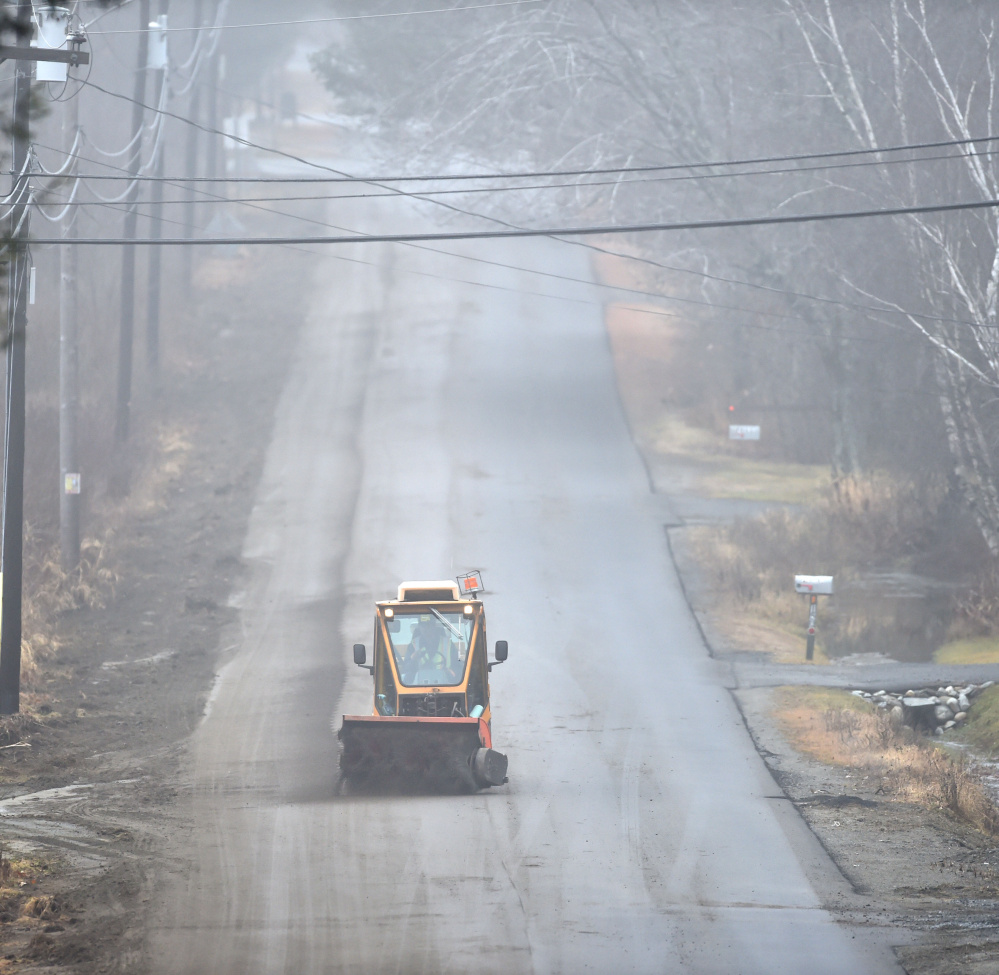
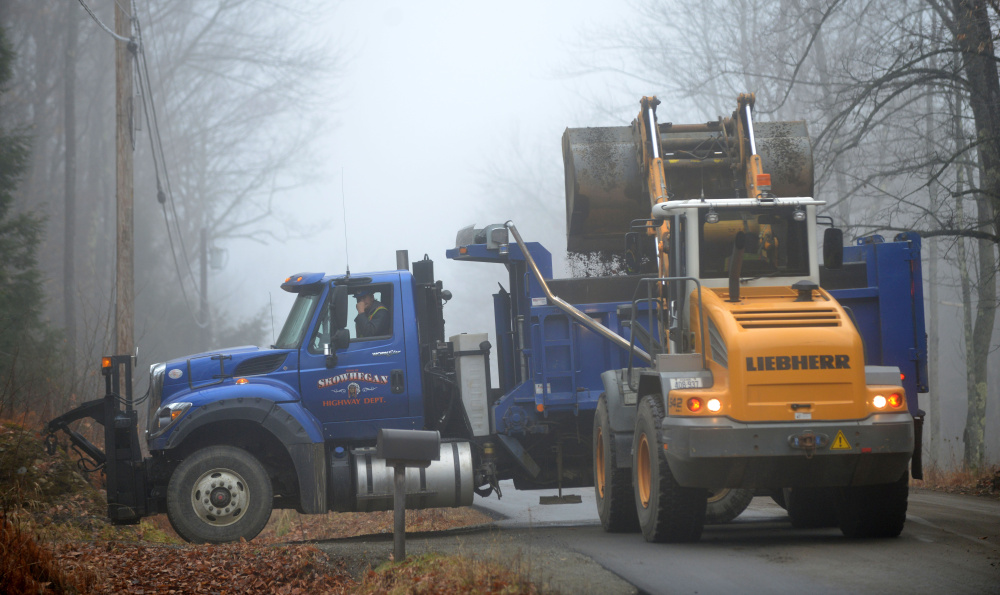
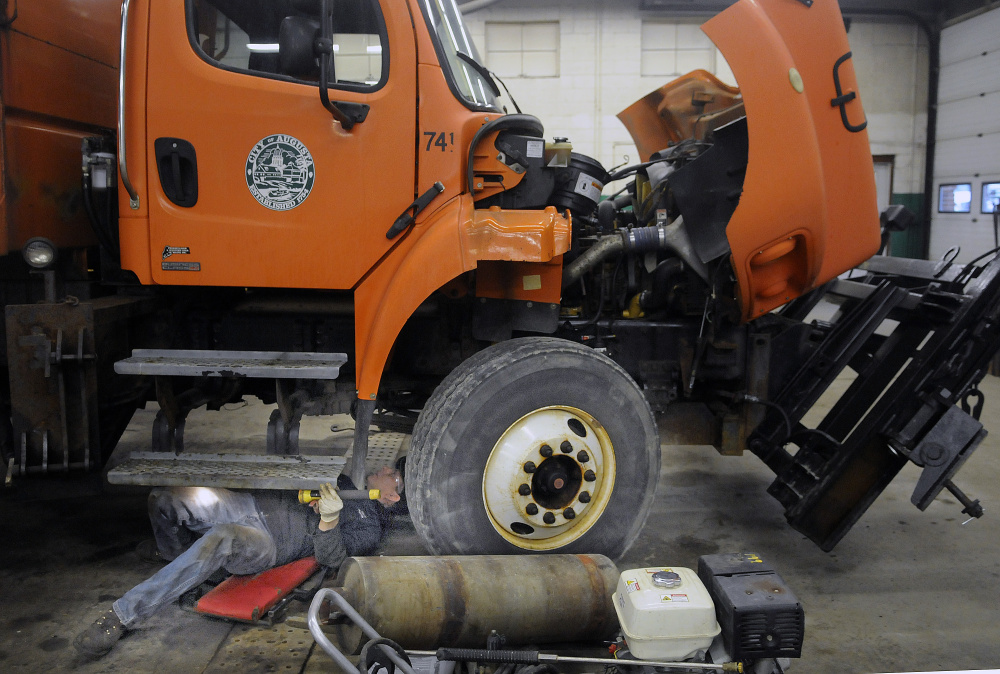
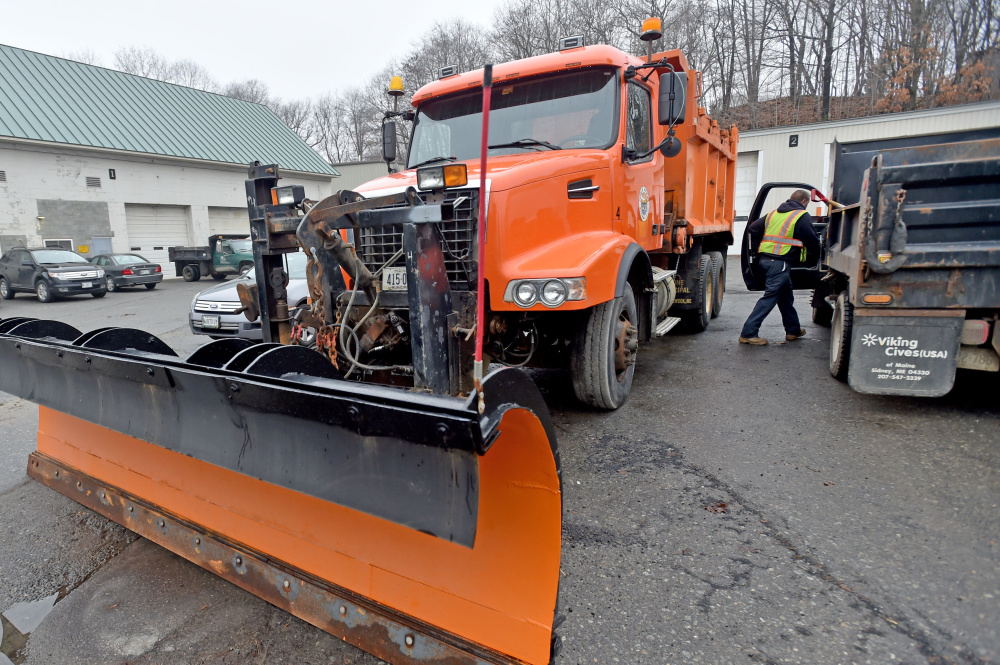
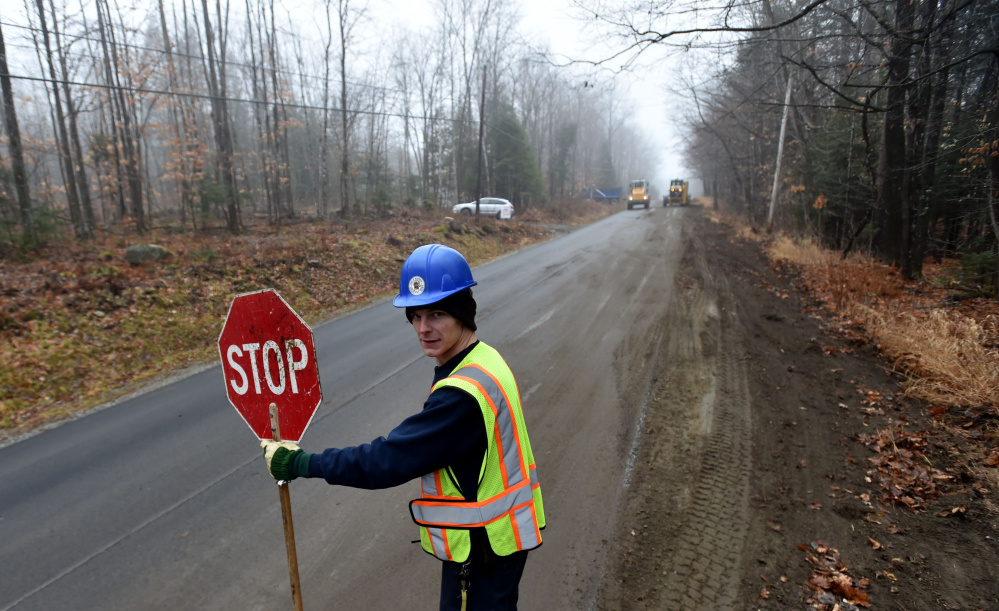

Success. Please wait for the page to reload. If the page does not reload within 5 seconds, please refresh the page.
Enter your email and password to access comments.
Hi, to comment on stories you must . This profile is in addition to your subscription and website login.
Already have a commenting profile? .
Invalid username/password.
Please check your email to confirm and complete your registration.
Only subscribers are eligible to post comments. Please subscribe or login first for digital access. Here’s why.
Use the form below to reset your password. When you've submitted your account email, we will send an email with a reset code.